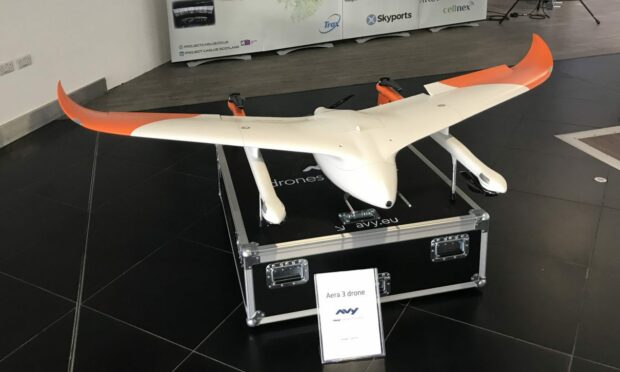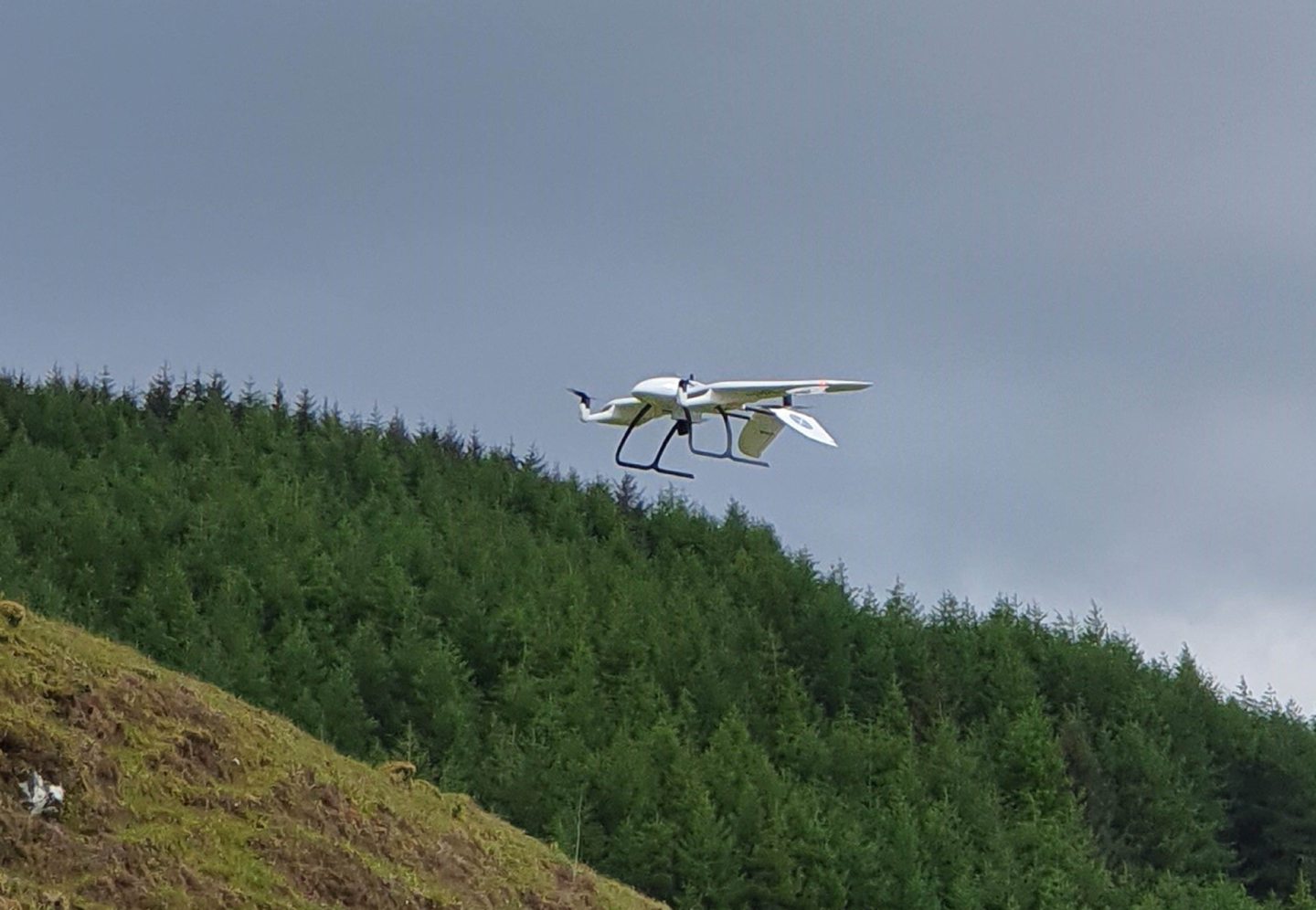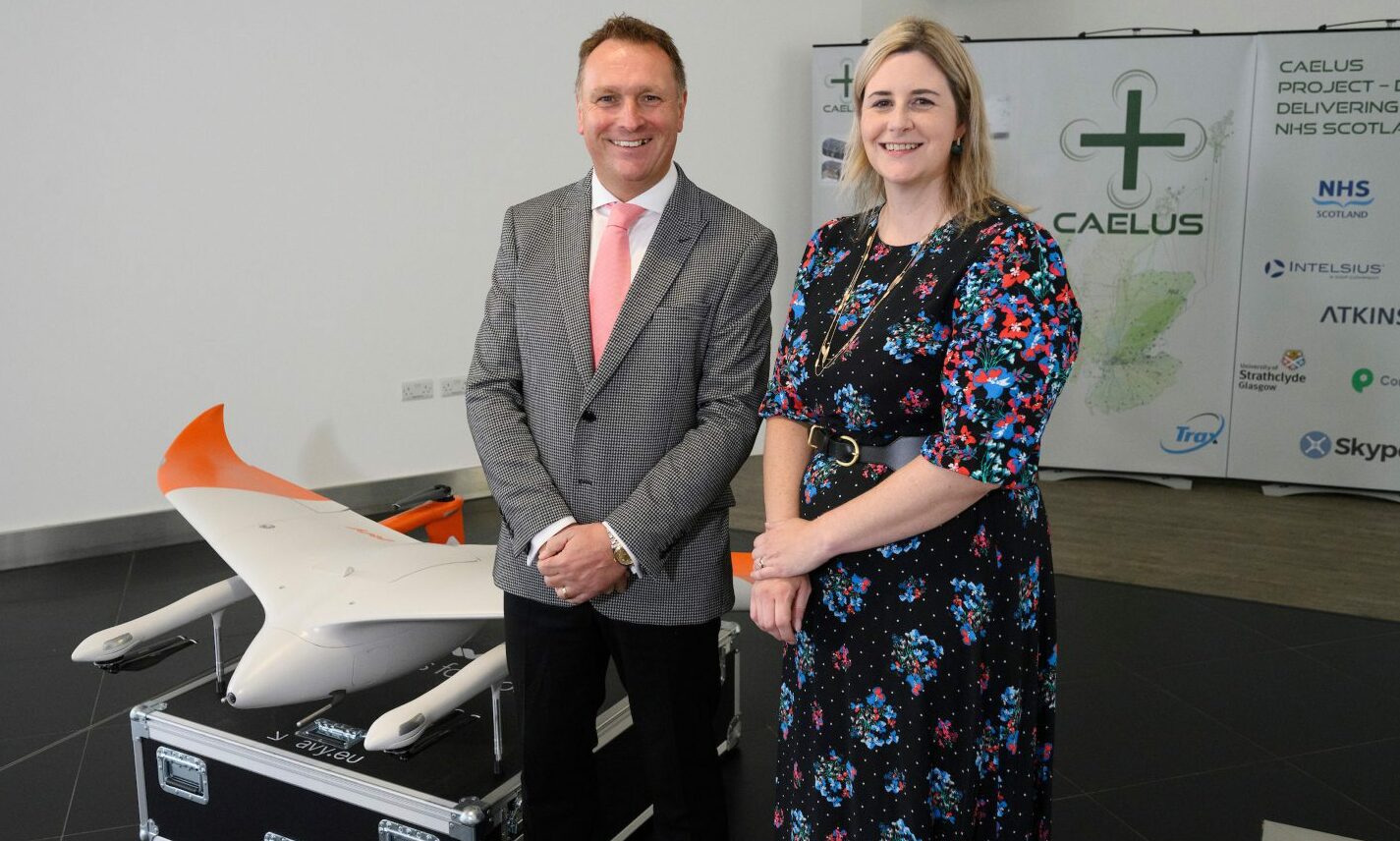Trials of the UK’s first medical drone delivery service will take place in the north of Scotland soon – and health bosses say it will have a dramatic effect.
A pioneering project led by NHS Grampian and the owners of Aberdeen Airport, among many other organisations, has taken another step forward today.
The £10m Project Caelus will transport blood samples, vital medication and other medical supplies throughout the country.
It could put an end to people living in remote or rural communities being forced to travel hours for simple treatments.
Drones could transform cancer treatment in Moray
While the Caelus drone project will help people in remote areas like the islands, it could also benefit those who live much closer to a major hospital.
Hazel Dempsey, NHS Grampian’s innovation programme manager, gave the example of myeloid leukaemia.
This requires a simple treatment – a small injection that only needs a 10-minute appointment – but it’s one that can’t be received in Moray.
“The preparation of that medication has to be done in the original pharmacy, so that means patients have to travel there,” she explained.
NHSG Innovation Programme Manager Hazel Dempsey presents at today's CAELUS event! #dronetechnology@NHS_Lothian @NHSaaa@Skyports_DS @NHSGrampian @ABZ_Airport @GLA_Airport @NHSScotland @hises_scotland pic.twitter.com/YxyakYkvpd
— NHSG Innovation Hub (@InnovateNHSG) September 6, 2022
“The way it’s prepared means it can’t go into a van. It would take too long and, by the time that medication reached the patient, it wouldn’t be stable.
“For [patient] Mrs Smith, who lives on the Moray Coast, she would have to travel to Aberdeen Royal Infirmary for an infusion cycle every 28 days, seven days in a row.
“That’s 70 miles by car – which possibly takes two hours one way and two the other.
“You can’t imagine an individual in their 80s having to make that journey.”
Freeing up hospital beds in Shetland
Hazel also expressed concerns for island communities, with people having to travel overseas or wait long periods for medicine supplies.
“The next few years will really be about asking ‘how can we limit that travel?’ and keep patients in their own communities,” Hazel said.
“Chatting with colleagues in NHS Shetland, often patients have to wait in hospital because they’re just waiting on a product coming from ARI before the treatment can begin.
“If there’s a delay, that’s taking up bed time.”
The exact amount of time saved by a drone delivery depends on the equipment used, but their speeds start from 30mph.
‘Completely revolutionise health care’
Caithness, Sutherland and Ross MSP Maree Todd is also backing the Caelus project and says drones could “completely revolutionise” healthcare in Scotland.
She said: “The NHS is under huge pressure to recover from the pandemic, it’s critical that we harness technological innovation to support that recovery.
“The adoption of drones provides an opportunity to quickly deliver medicines, bloods or other medical supplies on demand.”
The next step for the project is to run more live flights, and start building prototype landing bases for the drones.
Fiona Smith, AGS Airport’s head of aerodrome strategy and the Caelus project director, said the project will make deliveries more efficient, adding: “It can reduce waiting times for test results and, more importantly, provide equity of care between urban and remote rural communities. ”
Read more:
Drones deliver prescription medicines for pharmacy for first time
Humza Yousaf: ‘Drones could be game-changer for patients in Highlands and Islands’



Conversation